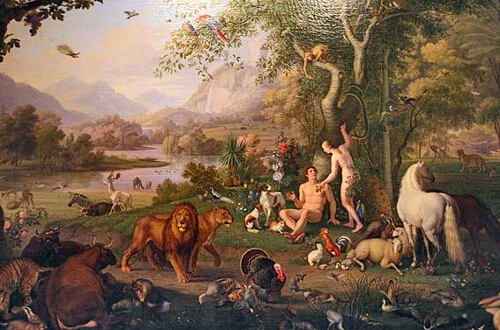A Year of Breakthrough
January 24, 2020Tuesday, March 24
March 25, 2020
I want to expand and a expound a bit on something I talked about at the most recent gathering of the The Cup & Table Co.. Shawn Bolz pointed us to the verse in First Kings 3:9, where Solomon the new king of Israel, asks God for the wisdom to fill his father David’s sizeable shoes.
Therefore give to Your servant an understanding heart to judge Your people, that I may discern between good and evil. For who is able to judge this great people of Yours?”
NKJV
As we discussed, the Hebrew words translated “understanding heart” in the verse above are leb (heart or inward person) and shama (knowledge, hearing, or understanding). In other words, Solomon is asking God for a hearing heart.
I’ve pointed to this passage many times in the past in talking about the power and importance of having a heart that hears the voice of God. But in reading this passage this week I saw something I’d never noticed before. Something that gave me a new persepective on this passage.
What stood out for me this time was the “why” behind Solomon’s request. He needs a heart that hears and understands so he can “discern between good and evil.”
Where else in the Old Testament does the understanding or “knowledge of good and evil” figure prominently? In the opening chapters of Genesis, obviously.
There, God forbids Adam and Eve from eating from the Tree of the Knowledge of Good and Evil. It is the violation of that commandment that triggered the Fall of Mankind and unleashed the curse of Sin upon the world.

This puts Solomon’s request in an interesting new light. God honored that request and praised Solomon for making it. Why is this so, when the knowledge of good and evil is the very thing God did not want Adam and Eve to possess?
As I pointed out in our gathering, I believe this is because it was NEVER the purpose of the Old Covenant to reverse the effects of The Fall. It could not. Reversing the Curse required the appearance and sacrificial death of the Last Adam.
Indeed, getting that Last Adam—the Messiah—into the earth was the sole purpose of the Old Covenant. The covenants with Abraham and Moses/Israelites were expressly and solely about forming a people that would ultimately, in the fulness of time, introduce the Christ into the world.
In the Mosaic Covenant, a.k.a. the Law, “hearing the voice of God” was very much anchored to the Tree of the Knowledge of Good and Evil. That’s what The Law was–an explicit defining of of good and evil.
Contrast this with what Jesus Himself said under the New Covenant He’d ratified with His own blood:
“He who has an ear, let him hear what the Spirit says to the churches. To him who overcomes, I will grant to eat of the tree of life which is in the Paradise of God.”
Revelation 2:7 (NASB)
Note that, as with Solomon, the context here is “hearing what the Spirit is speaking. But in the New Covenant, we’ve been reconnected to the Tree of Life . . . the one we were originally intended to partake of.
I also pointed us to the New Covenant corollary to Solomon’s request for a “hearing heart”—Ephesians 1:18:
I pray that the eyes of your heart may be enlightened, so that you will know what is the hope of His calling, what are the riches of the glory of His inheritance in the saints . . .
(NASB)
Here Paul uses the metaphor of seeing rather than hearing, but the gist is the same. Yet the objective is completely different. Read the entire passage taking note of what follows Pauls “so that . . .” The reasons continue right on into Chapter 2.
Whereas Solomon’s request kept him tethered to the Tree of the Knowledge of Good and Evil, Paul’s language points us to the Tree of Life—especially as he repeatedly references Jesus’ victory over Death.
Contrast Paul’s “so that . . .” with Solomon’s objective back in First Kings 3:9. Why, according to Solomon, was he in need of “the knowledge of good and evil?” Look at Solomon’s request one more time:
Therefore give to Your servant an understanding heart to judge Your people, that I may discern between good and evil. For who is able to judge this great people of Yours?”
Do you see it? Solomon needed this understanding in order to serve as a just judge. Judging disputes was one of the most central aspects of the role of king in ancient Israel. This began with Moses who became so overwhelmed with the job of judging disputes among the tribes of Israel that he had to institute a system of lower courts. (See: Exodus 18)
We’re all familiar with the iconic example of Solomon’s wisdom on display—the incident in which he is asked to judge between two women claiming the same infant. This is precisely the kind of thing Solomon had in view when he asked for a “hearing heart.”

He needed to know how to determine and dispense justice. He needed to be a good judge.
Fast-forward to the dawn of the New Covenant as Jesus tells his followers to “Judge not, lest ye be judged.” (Matthew 7:1)
Paul frequently warns his letter recipients against trying to “apply the Law” to themselves or to others. (See: Galatians . . . all of it.) This is what judges do. They apply the law.
The New Covenant wasn’t just “new.” It was a different kind of covenant than the Old. In the words of Jeremiah the prophet, the new one would be “not like the covenant I made with your ancestors.” (Jeremiah 31:32)
As we, as a community of believers, press in to hearing the voice of the Spirit, it’s vital that we understand this distinction . . .
We are connected to the Tree of Life and we are pointing others to it.
Having the eyes and ears of our hearts attuned to what God is showing us and saying to us isn’t about being better judges. It isn’t about staying tethered to the wrong tree.
We (inwardly) hear and see so we can connect others to Life. And that Tree isn’t actually “tree.” He is a person:
Jesus explained, “I am the Way, I am the Truth, and I am the Life. No one comes next to the Father except through union with me.
John 14:6 (The Passion Translation)
